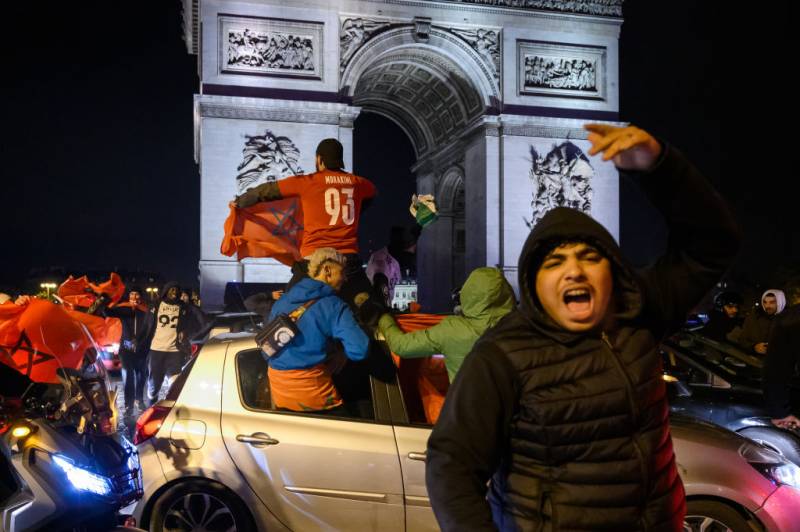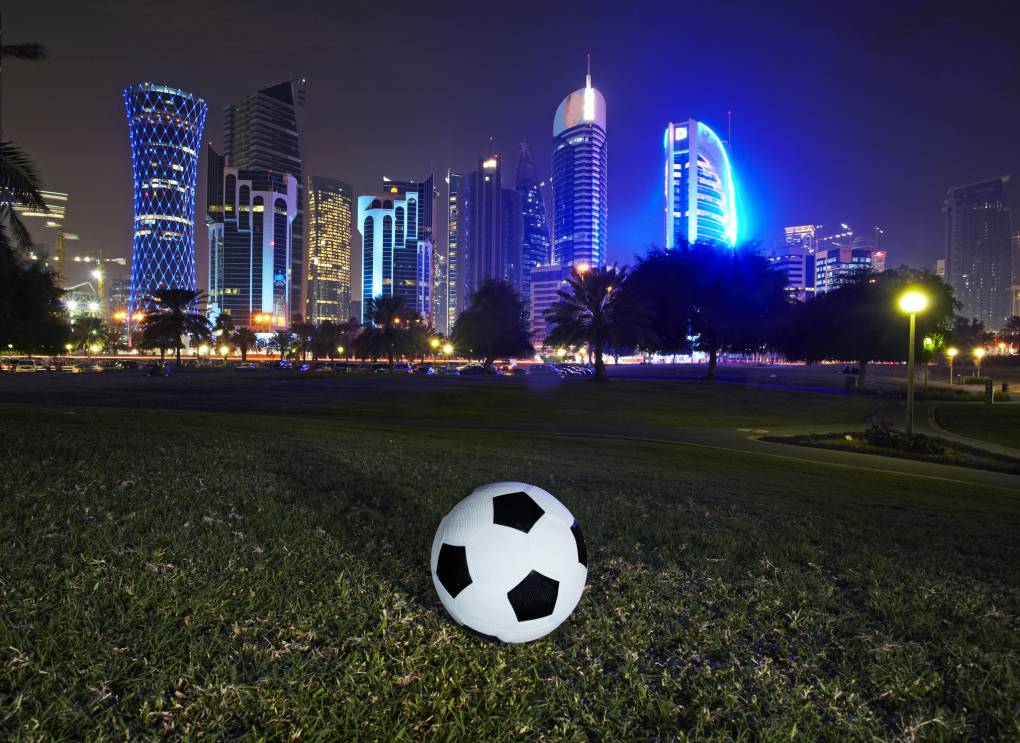“I sincerely hope that Morocco advances to the final,” Bartali said. “I am aware that it will be difficult because France is a very good team, but we are hoping for the best.”
Sabouni's sentiments resonate with Moroccans and other North Africans in France. Although the younger generation of immigrants and their descendants appear to be more at ease with multiple identities and languages in France, they still face institutional discrimination and racial and ethnic prejudice in public life, economic hardship and lack of job opportunities.
As in previous World Cups, France once again has turned to their national soccer team made up of players from diverse backgrounds as evidence that the country has indeed become a melting pot despite lurking prejudice, stoked against immigrants by elected right-wing politicians.
“Cultural changes and changes in life on the ground do have an effect, and the team represents that,” said Laurent Dubois, a professor at the University of Virginia who has written two books on French and international soccer.
“The way the players inhabit being French and don’t seem to have an issue with also being African or anything else at the same time is an antidote to the immigrant resentment on the right.”
The Morocco national team depends heavily on the diaspora, with 14 of the squad’s 26 players born abroad — as is their French-born coach, Walid Regragui — the highest proportion for any team at the World Cup.
In Morocco, people have embraced the team's foreign-born players as their native sons. They welcome the experience and professionalism they bring from Europe's top clubs and are proud they chose Morocco as their national team when they could have played for the countries of their births, from Spain to Canada to Belgium and beyond.
Like Morocco’s supporters at home and an estimated 5 million scattered around Europe and beyond, many players grapple with family tales of colonial history, the challenges of immigration and questions of national loyalty. They want desperately to detach from the burdens of the past and win a place in the World Cup final — whether home for them is in France or Morocco, or Belgium, Canada, Tunisia, Algeria or elsewhere.
“Most of the Moroccan players who were born abroad chose Morocco as their national team because they feel they play for more than just to win a football match,” said Maher Mezahi, a Marseille-based Algerian journalist covering African football. “They play to elevate national pride and to make their family proud."
For Regragui, his and his players' dual identities are meaningless in the biggest match the squad has faced.
“I’m a dual national, and that’s an honor and a pleasure,” the Moroccan coach said. “And it’s an honor and a pleasure to face France. But I’m the Morocco coach and we’re going to be playing the best team in the world. The most important thing is to get through to the final.”
“When we play for the Moroccan national team, we are Moroccans,” Regragui said.

